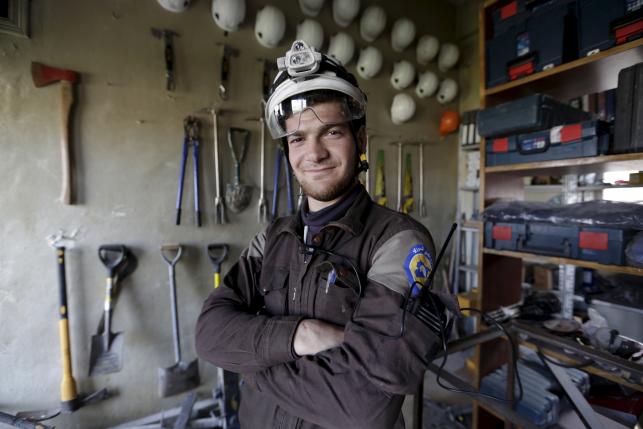As peace talks
are set to get under way in Geneva next week, residents in Syria from
nurses to street vendors voice little optimism over the United
Nations-backed negotiations’ chance of success. The
Geneva talks will coincide with the fifth anniversary of a conflict
that began with protests against President Bashar al-Assad before
descending into a multi-sided war that has drawn in foreign governments
and allowed the growth of Islamic State. Fighting
has slowed considerably since a fragile "cessation of hostilities
agreement" brokered by the United States and Russia came into force
almost two weeks ago. The agreement, accepted by the government and most
of its enemies, is the first truce of its kind in a war that has killed
more than 250,000 people and driven millions of Syrians from their
homes. "The truce has not changed
anything in my life. The war planes are still hovering above us,” says
Abdul Razzaq Khashan, 40, an aid worker in rebel-held Idlib province. “I
do not expect anything from the Geneva talks.” The
truce does not include Islamic State or the al Qaeda-linked Nusra
Front. Nusra Front’s fighters are deployed in western Syria, close to
rebel groups that have agreed to the halt in fighting, and there have
been accusations of violations by all sides. "The
peace talks will take away Syrian people's rights to freedom and
justice and will give the Assad regime more power," says Ali Abdullah,
33, a nurse in Dakkak hospital in the northern city of Aleppo. The
truce, however, has had a positive impact on his work as a nurse. "I’m
glad not to see more injured children.” Not everyone in Syria shares that pessimism about the possible outcome in Geneva. "As a university
student, I can go three times a week to attend classes now, instead of
once before the truce," says Borhan, a cosmetics vendor in the capital
Damascus. "I do not know the outcome (in Geneva) but I am optimistic,"
he says, adding that he is hopeful that the end of the war is close. Wael,
a mobile phone vendor, also in Damascus, says the truce has given him
psychological stability, but adds that he expects the war to last 10
years. "I am not optimistic (about
Geneva) because of the opposition's actions," he says, adding that he
predicts that the war will last for about ten years. “The opposition needs to be removed like gangrene,” he says. An Idlib resident says the talks in Switzerland will come to nothing while Assad remains in place. “I
am against the truce completely because it did not change anything in
the pattern of my daily life,” says Abdul Karim Ismail, 58, who works in
water transportation. “The Geneva talks will not lead to any result as
long as Assad is still in power because he is the root cause of the war
in Syria.” Western states have
said the cessation of hostilities appears to be largely holding, hoping
that will allow for the talks to get underway. A previous attempt to
convene talks was aborted in February before any face-to-face meetings
took place. “I hope Geneva peace
talks will make a difference,” says Abu Khair, who sells freshly made
fruit juice from a street stall in Damascus. “I hope to God, I hope to
God.”
Syrians see few prospects for peace from Geneva talks
















Comments About This Article
Please fill the fields below.